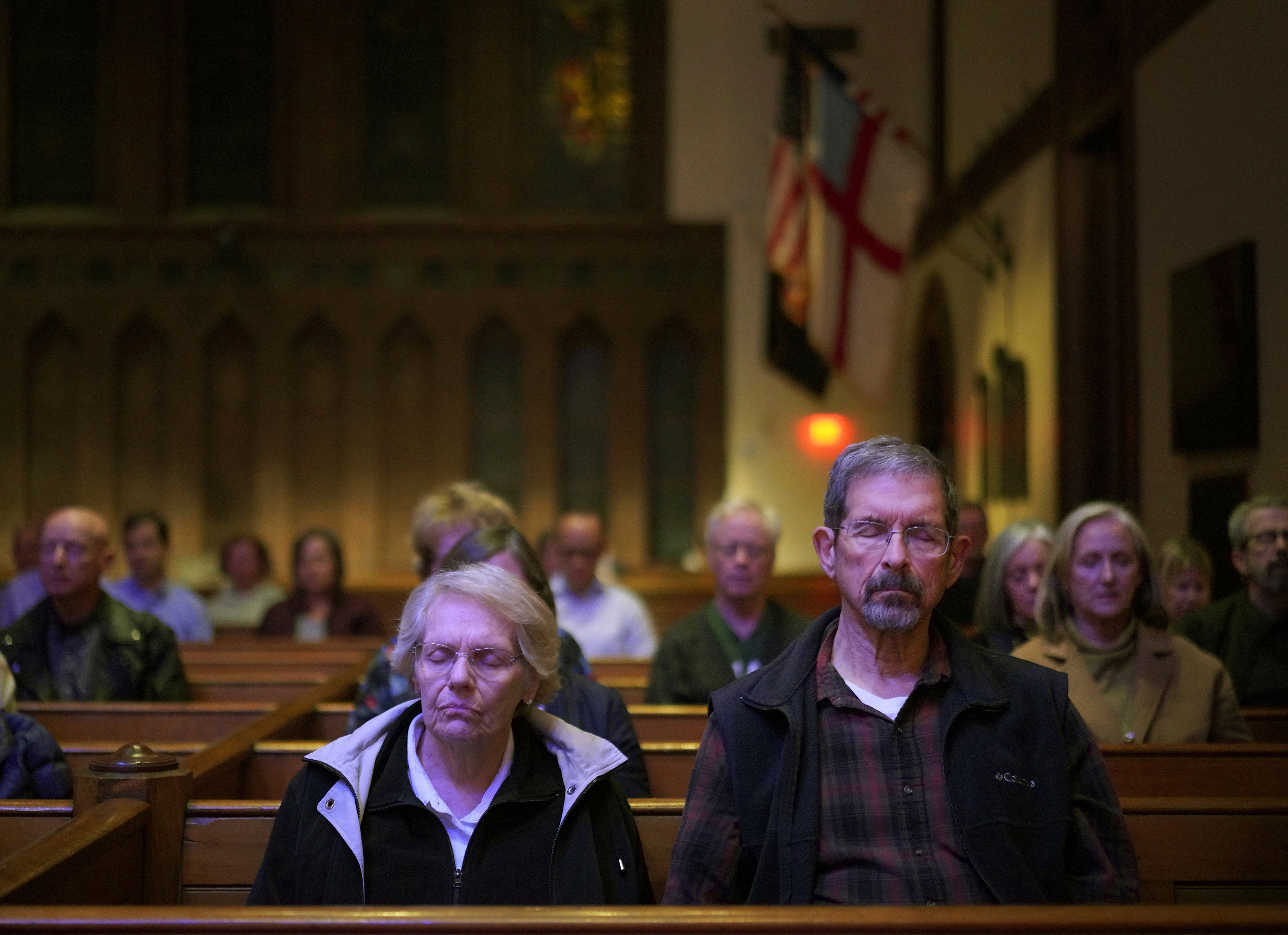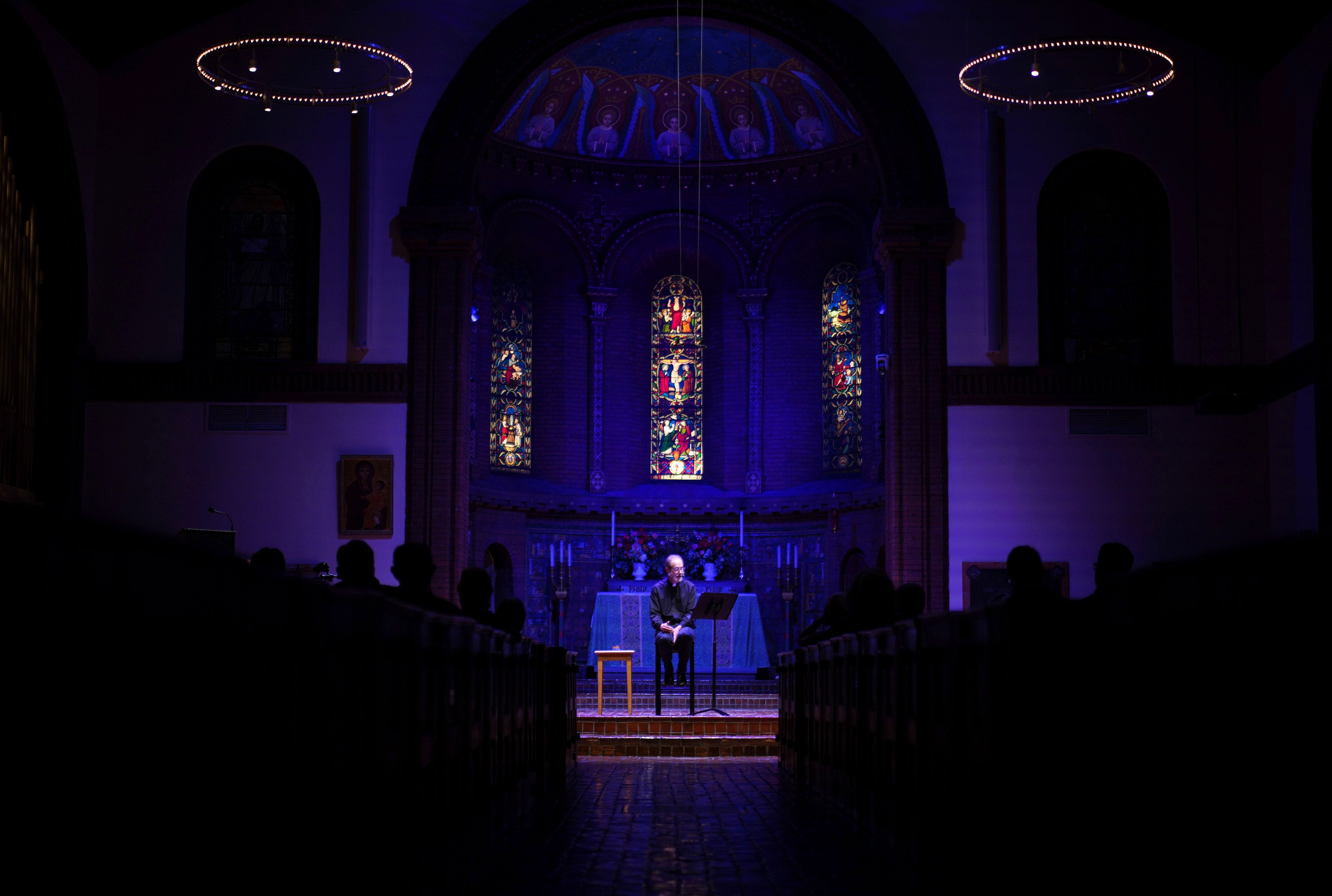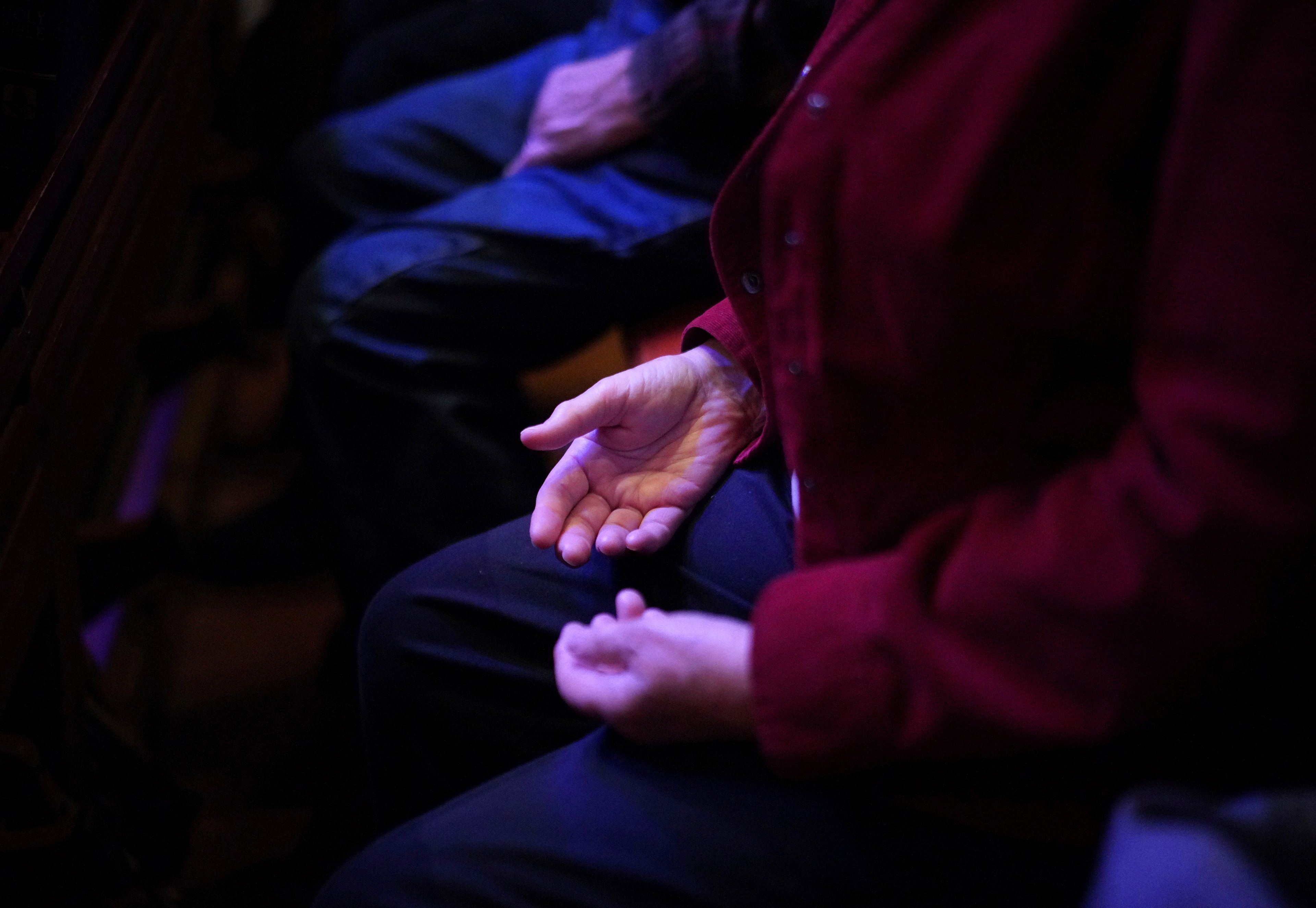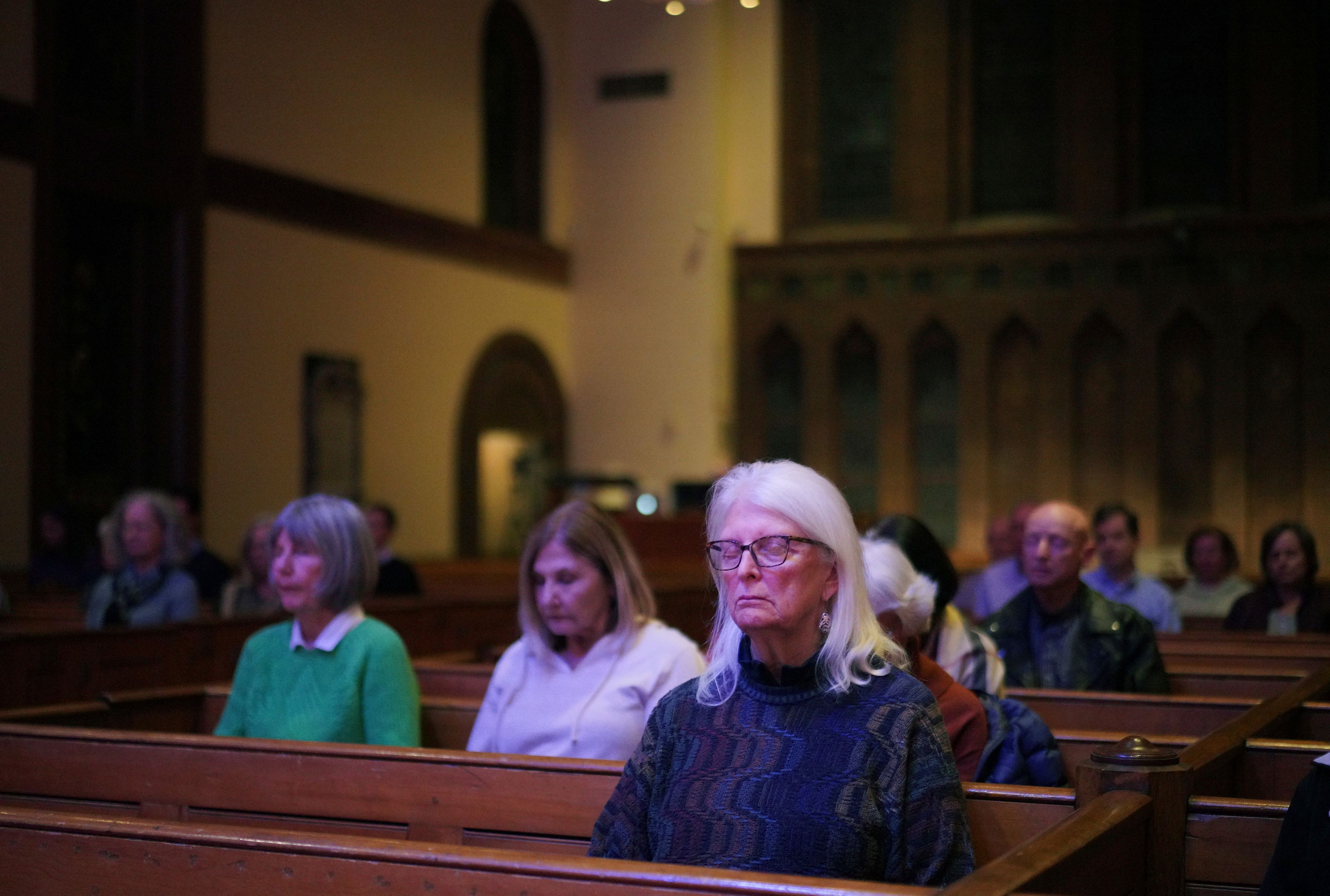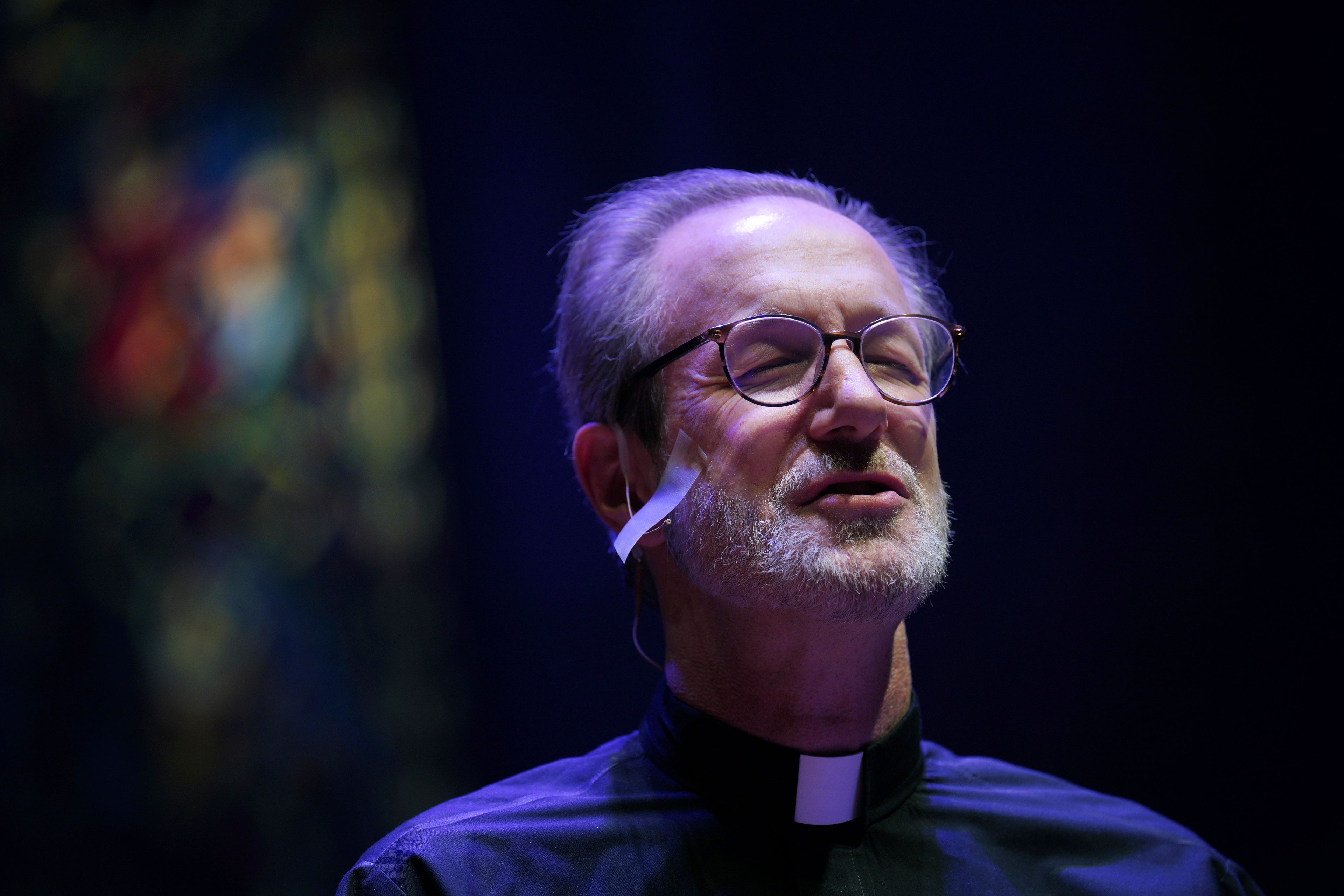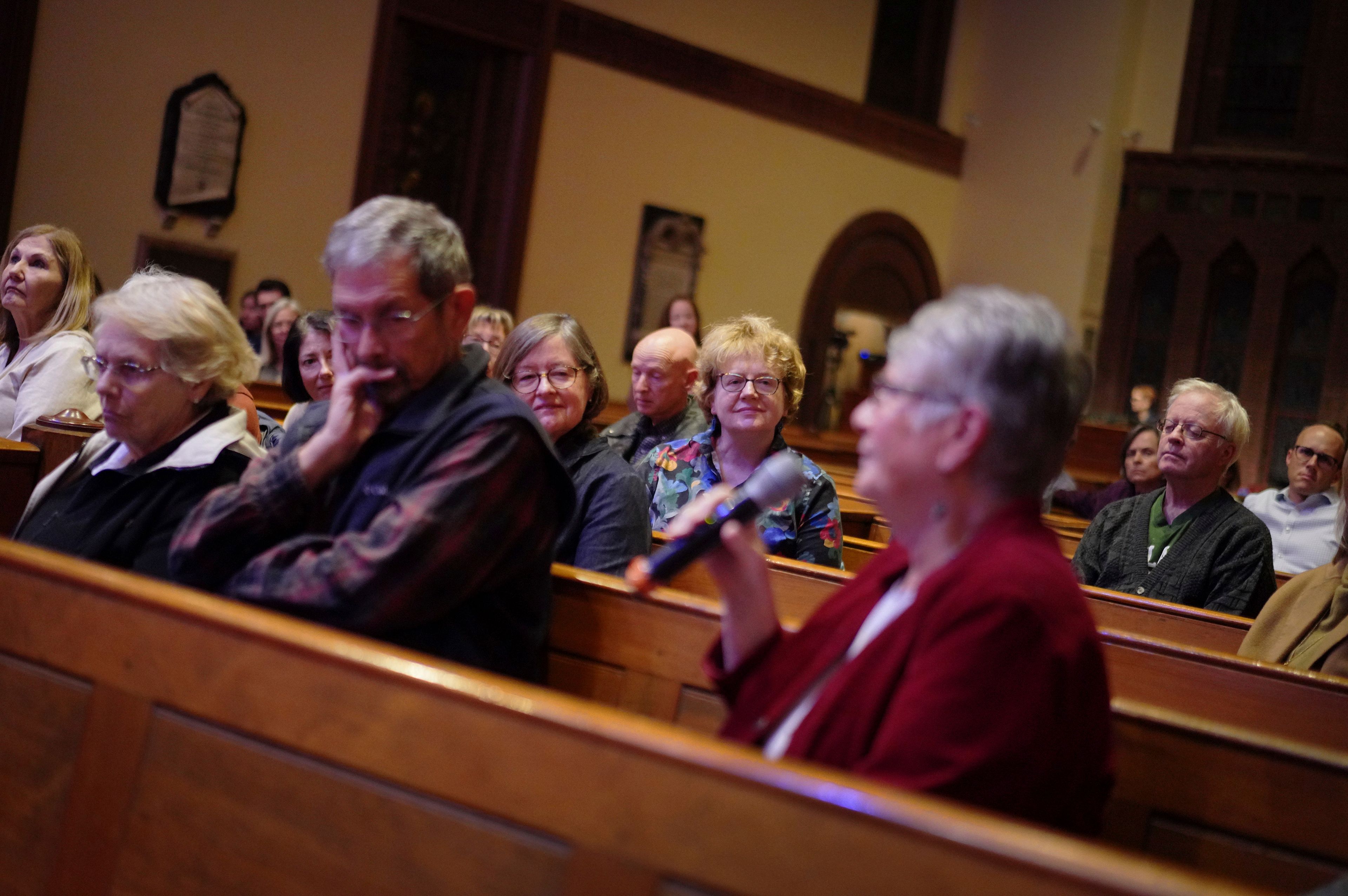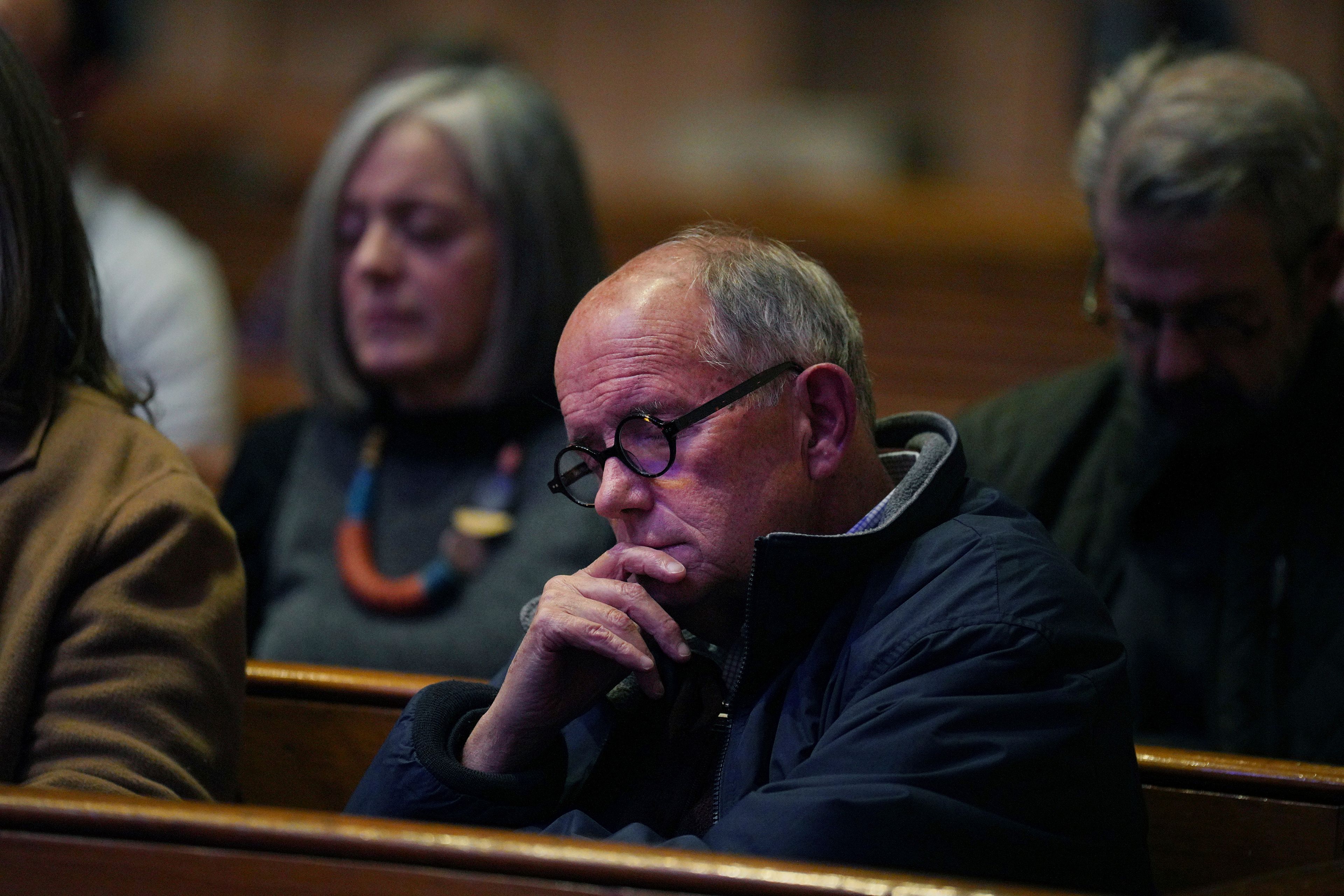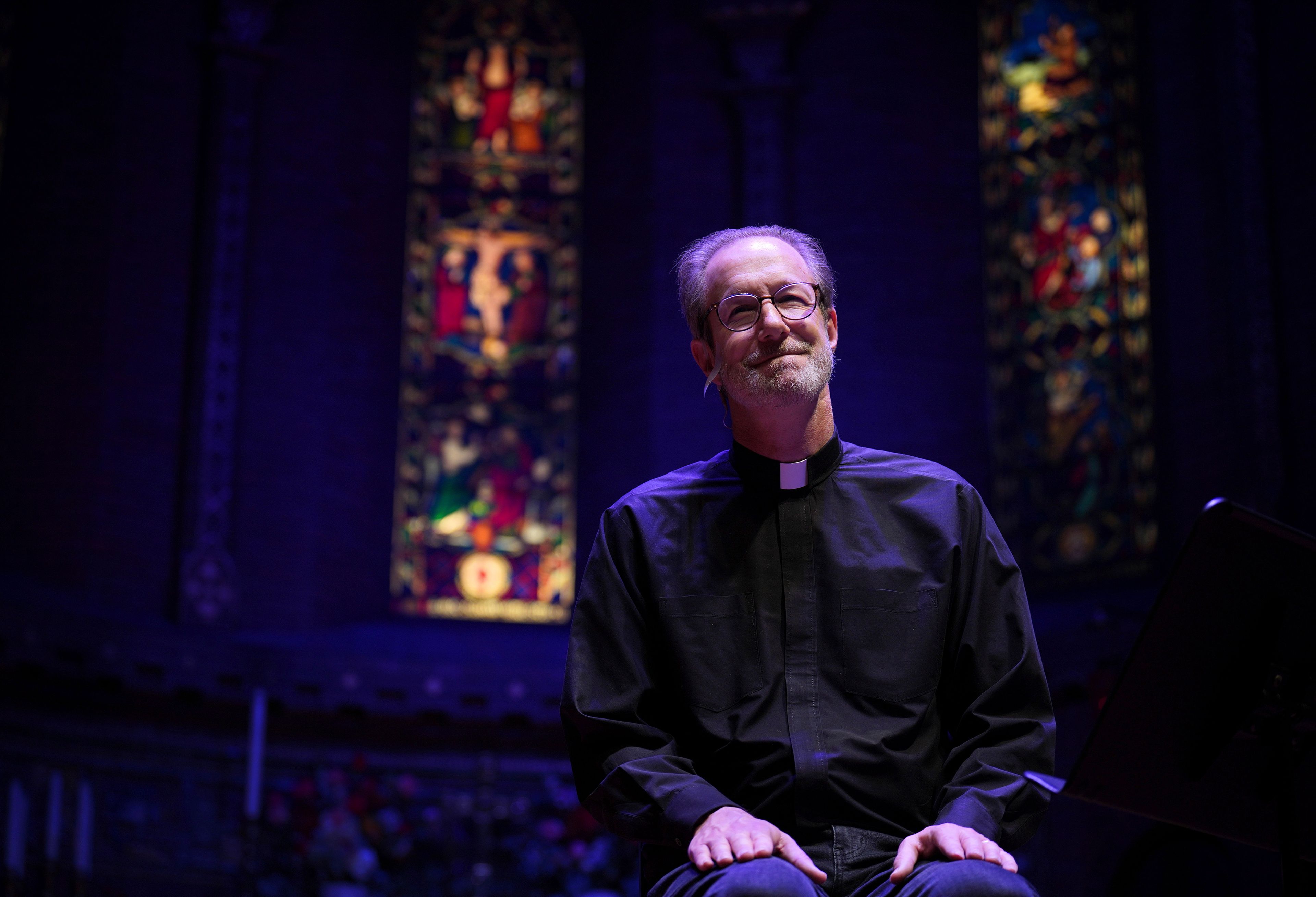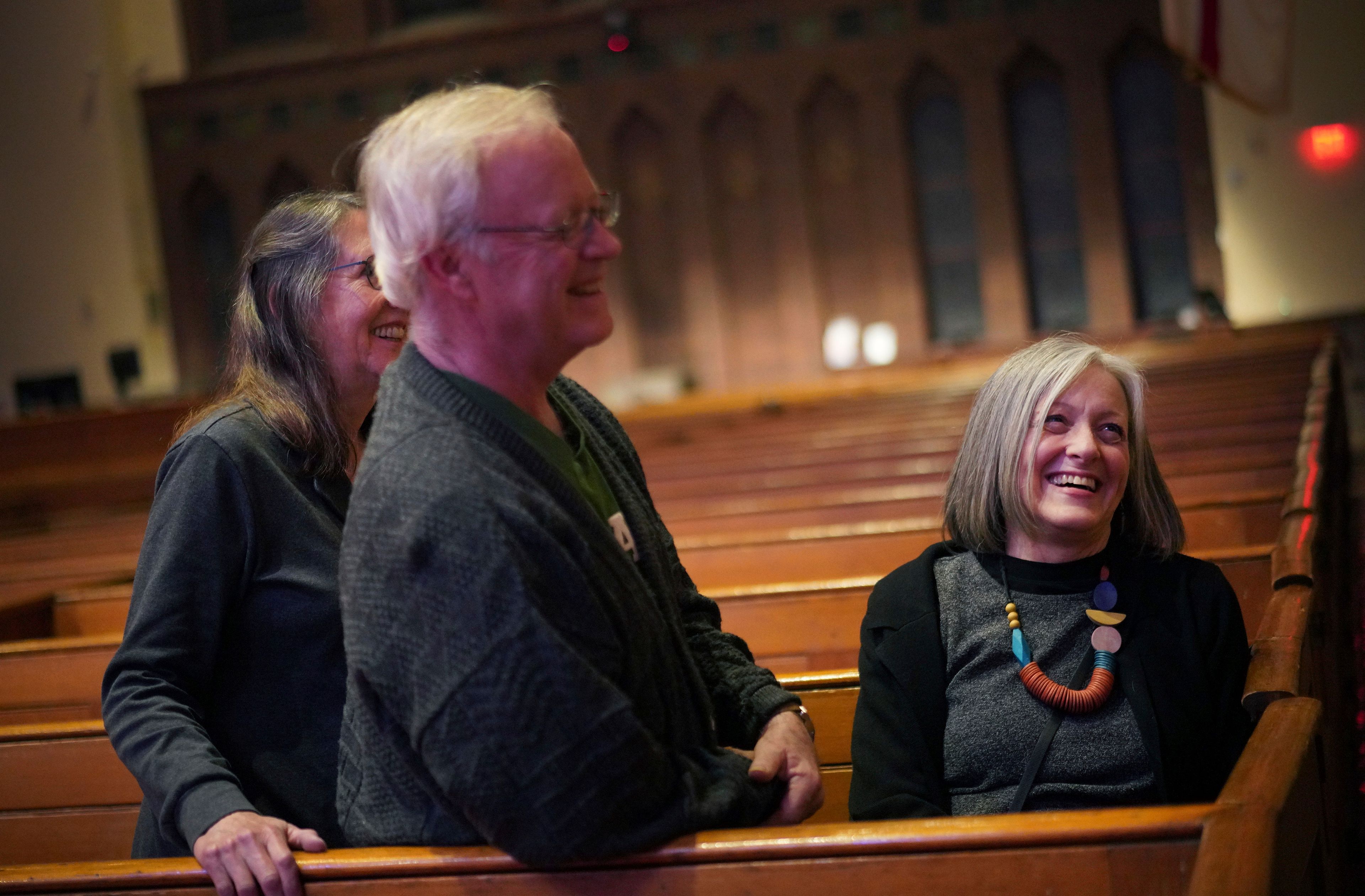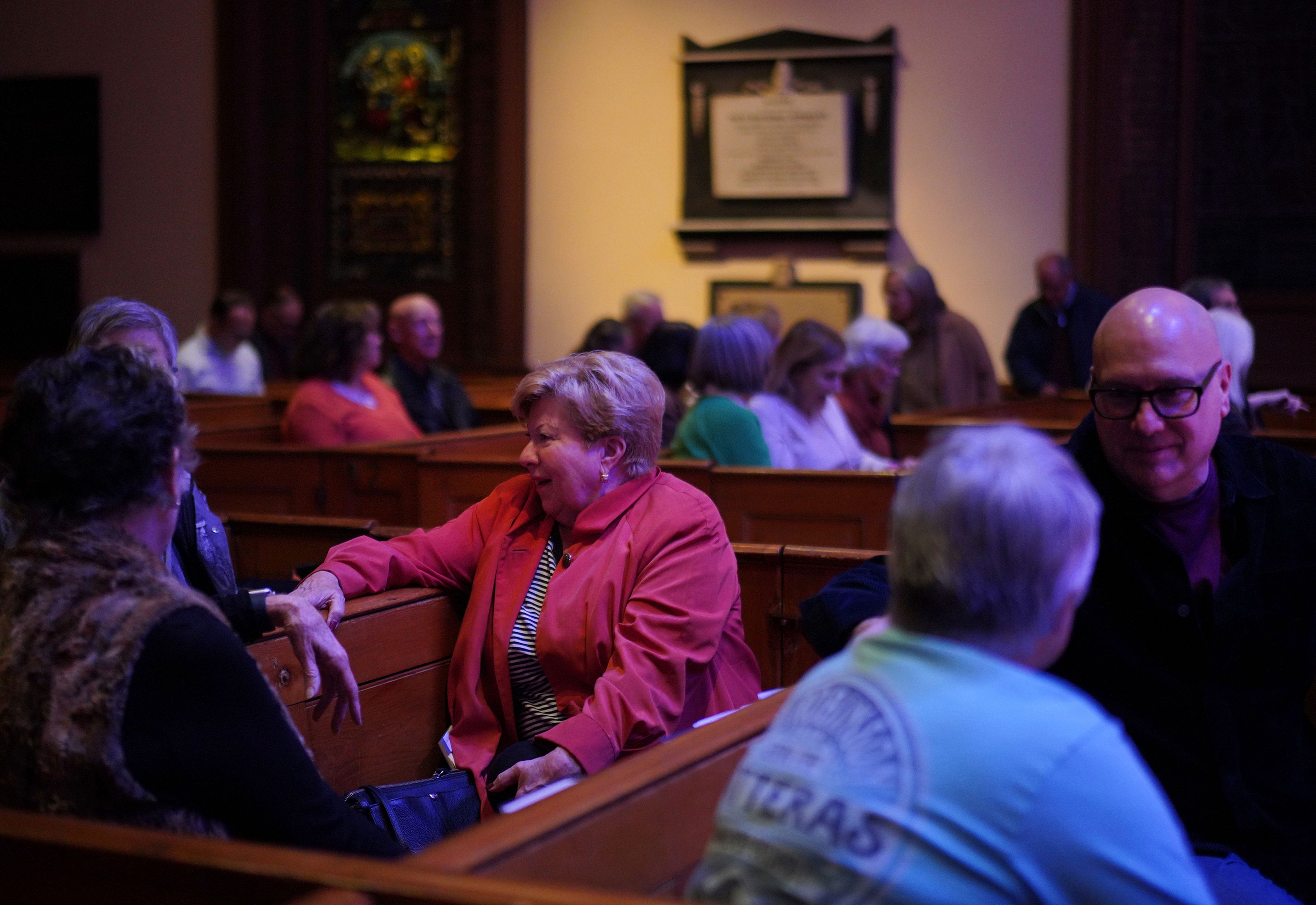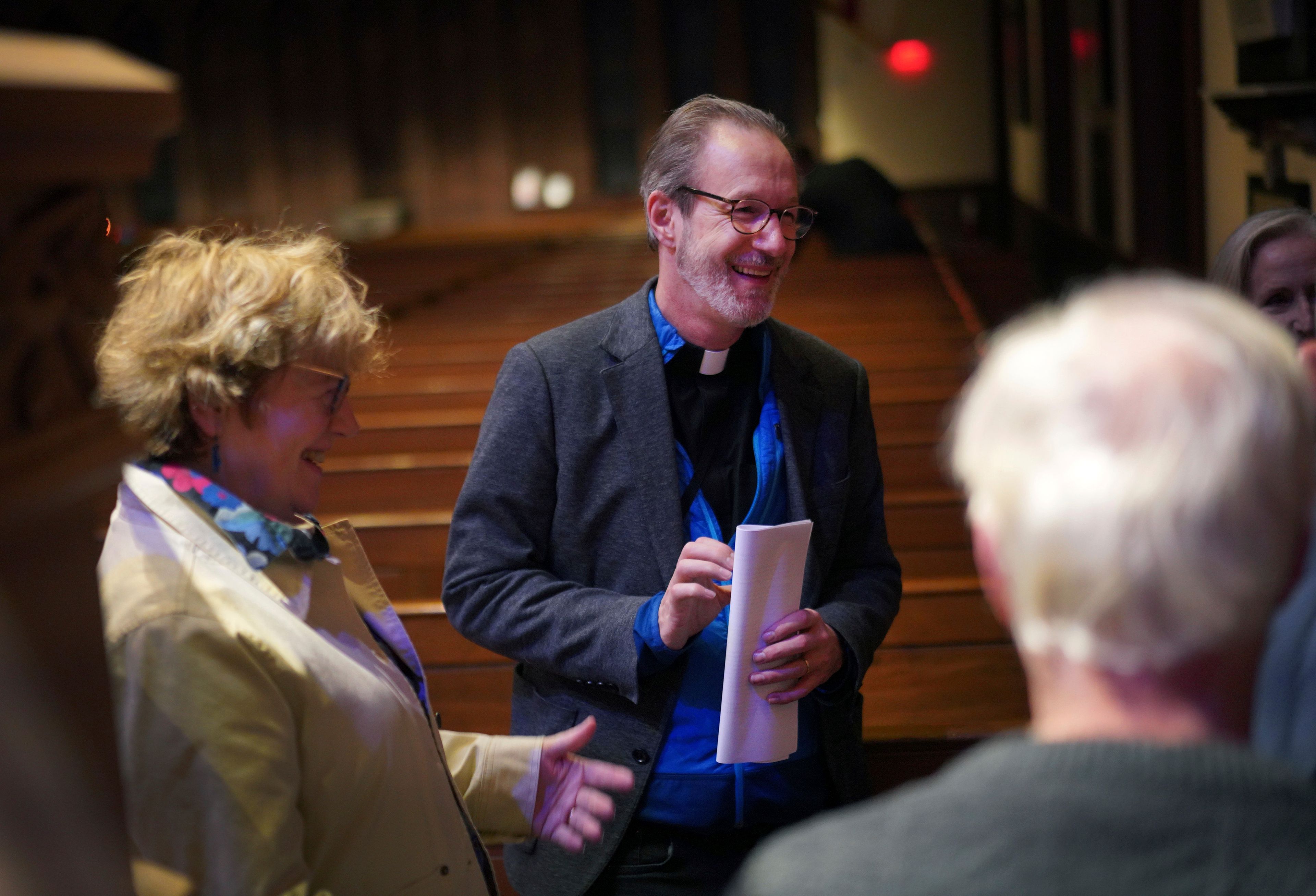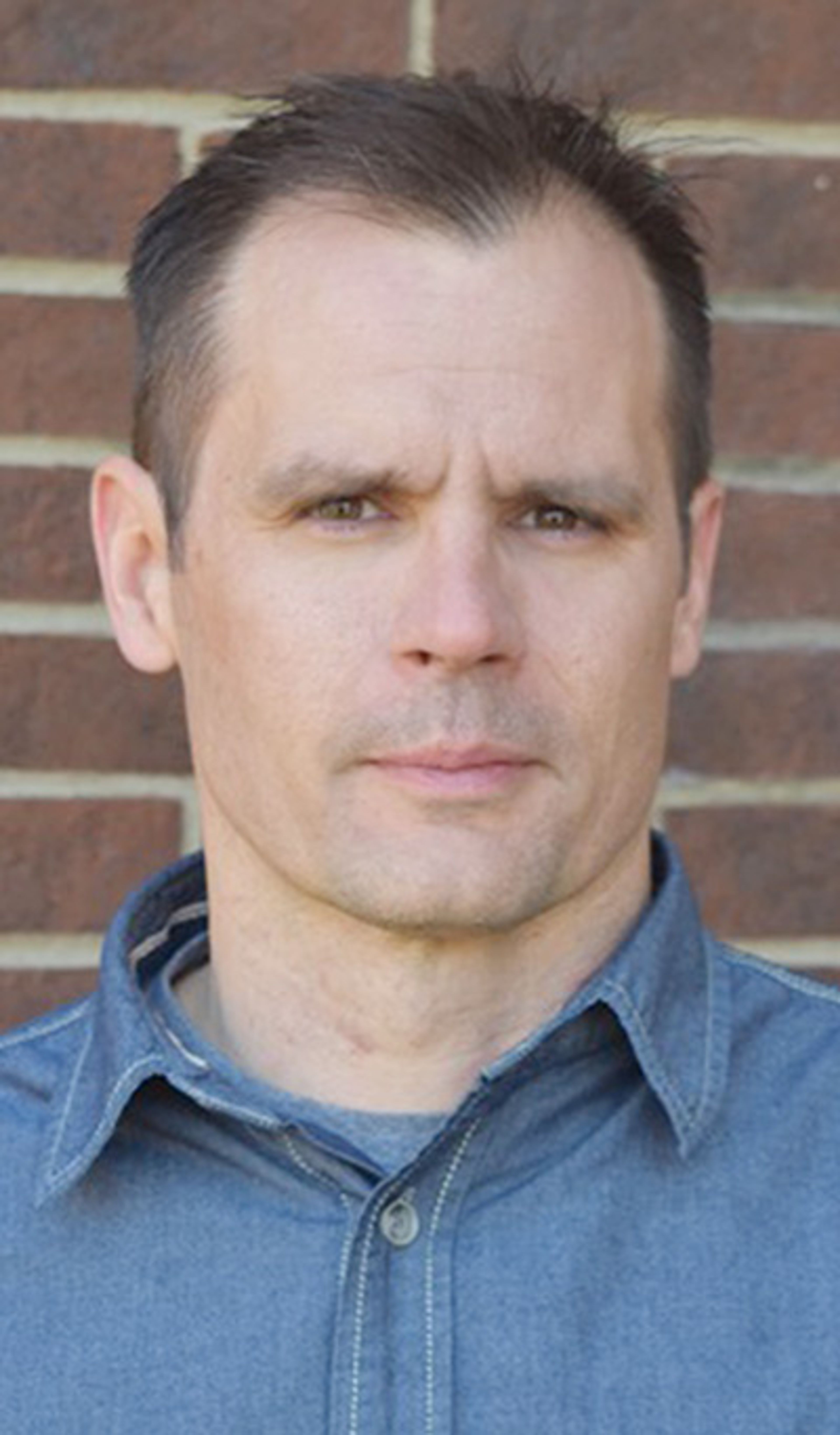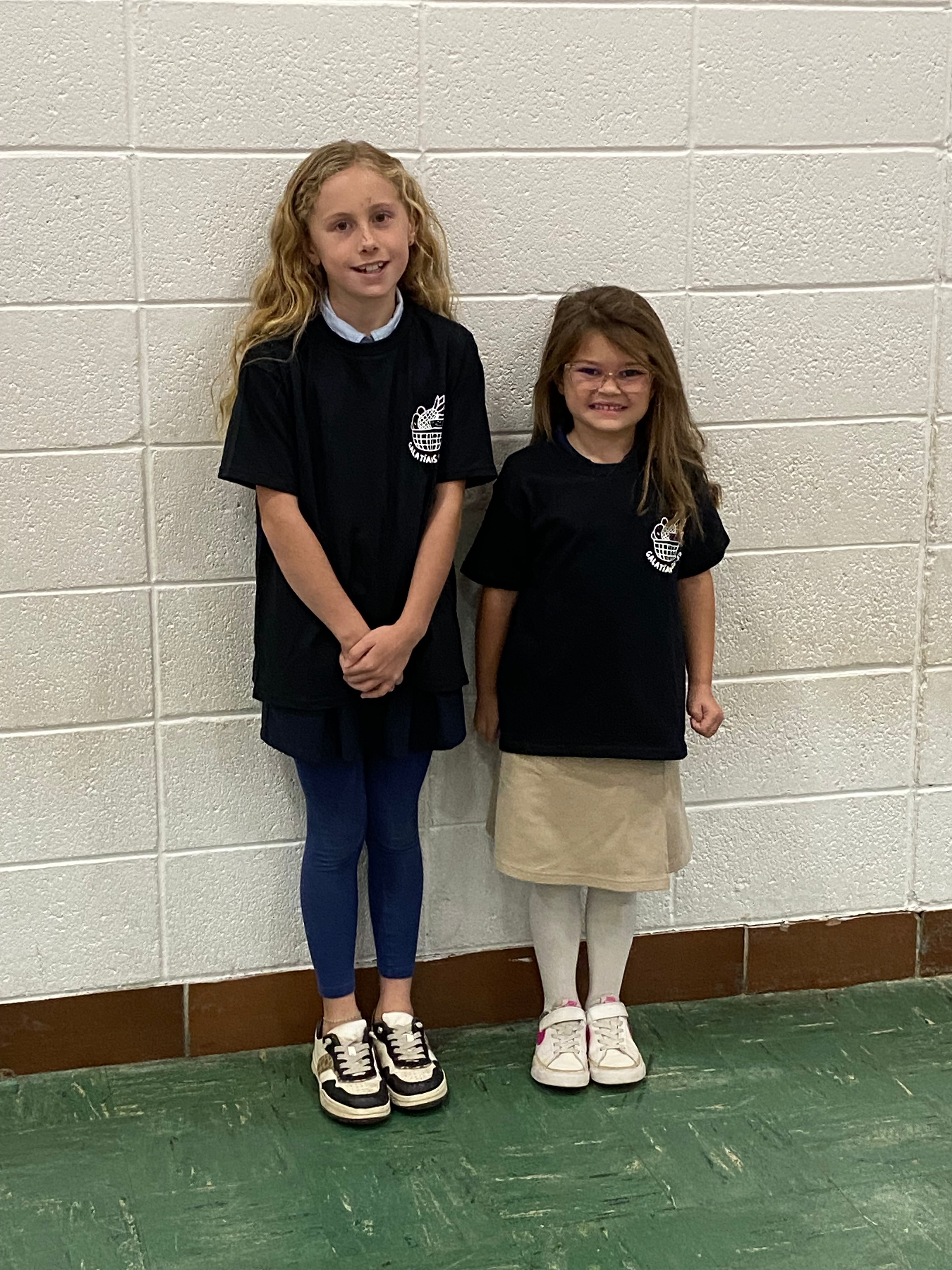Swing-state priest teaches ancient techniques for surviving today's political turmoil
Rev. David Peck uses ancient spiritual practices to help people navigate political tensions in Pennsylvania. His "Contemplative Citizenship" series fosters reconciliation through meditation and prayer.
LANCASTER, Pa. (AP) — The Rev. David Peck knows first-hand how divided communities wracked by violence can be gutted by that repeated devastation.
In his previous work as an Anglican church representative for international development, Peck saw on his trips to Africa how religious groups could be part of the problem — but also part of the solution.
Now, Peck is a pastor in the heartland of Pennsylvania — a state that is the epicenter of a bitterly contested presidential campaign that has stoked deep anxiety, conflicts among families and friends, even fears of election-related violence.
Opposing groups can find reconciliation by drawing on common spiritual traditions, Peck said. It can be the shared belief in mercy or the recognition of the human dignity of all.
He’s realized “just how under-resourced people are in applying their faith creatively into a conflicted political landscape,” said Peck, rector of the historic St. James Episcopal Church.
“I think we’ve really got the best tools” in spiritual traditions to confront these conflicts, he said. “We’ve just not been accessing and utilizing them very effectively.”
So he’s started a weekly series of gatherings this fall at St. James, called “Contemplative Citizenship.” It’s aimed at helping people take a deep breath — literally — and apply ancient techniques of prayer and meditation that enable people to respond to conflict more deliberately.
Quick to anger? Election anxieties spur these Christians to do better
In the subdued lighting of the church's sanctuary in downtown Lancaster on a recent Tuesday evening, he led a guided meditation for about 50 people — Episcopalians, Catholics, Quakers among them — who had brought their visceral anxieties about the election.
“The hope of democracy in a deeply divided country is of citizens that are more contemplative,” Peck told the gathering. He called for “a more prayerful, thoughtful and engaged citizenship that is better able to see the sins of our own parties, in our own selves as well as other people, so that we can live and vote and debate more humbly.”
This doesn't mean giving up one's firm political convictions. But the program aims to help people build the spiritual muscles to enable them not to react quickly in anger at someone’s contrary viewpoint, whether on social media or in real life.
Each week in the program, Peck gives a talk and then introduces participants to a classic prayer to meditate on. One week it was the Lord’s Prayer. Future sessions will include the use of mantras such as in the Hindu tradition and the Metta Prayer from Buddhist practice.
On this particular evening in mid-October, he focused on the Jesus Prayer, cultivated over centuries by Eastern Orthodox monks.
He opened with a talk drawing on Scripture, poetry, even the lyrics of the Rolling Stones. He then led participants in a period of quiet meditation, followed by an open mic sharing of reflections.
Participants said that while it’s difficult to filter out the hostility of the ongoing political campaign, they valued the opportunity to learn ways to respond more from a position of spiritual calm and strength.
“Now more than ever, we need this,” said Timothea Kirchner, a member of St. James.
She formerly worked as a county and public school administrator, where she said “it was my job to try to bring good people together who had very different opinions and to help them find common ground.”
But today, she said, “I find the conversations to be so full of vitriol. I just feel that a place like St. James has an obligation to make the conversations happen again, to find each other’s humanity.”
What can be learned from Gandhi, King and the Rolling Stones
Dennis Downey, a Catholic attending the service, said the lessons are useful for people of any religious tradition. “We have enough separation today,” Downey said. “We need things that will bring us together and provide a measure of hope and healing.”
During the session, Peck led participants in a time of quiet meditation on the Jesus Prayer, a practice that involves uttering a repeated phrase in rhythm with one’s breath: “Lord Jesus Christ, son of God, have mercy on me, a sinner.”
This mantra-like phrase, sober as it is, underscores a valuable political lesson, he said — that one’s own side isn’t always right, nor the other side always evil. He quoted the Rolling Stones’ classic, “Sympathy for the Devil,” which said the blame for the Kennedy brothers' assassinations extended to "you and me.”
Peck said the lyric was a sober reminder that “there was not only something wrong with the bad people out there, but something wrong within me and the good people out there, too.”
While many fear the potential for violent conflict during and after the election, Peck is hopeful. He draws on his experience years ago as a secretary for international development for the Archbishop of Canterbury — the leader of the global Anglican communion, of which the Episcopal Church is a part — on issues of international development. It was in that role that he saw the role of faith-based groups in Africa working to bring peace amid conflict.
He also noted that faith-based liberation movements in history, such as those led by Mahatma Gandhi and the Rev. Martin Luther King Jr. had strong spiritual roots. In the Civil Rights Movement, the churches and Christians had formal training in practices of prayer and nonviolence.
“We do have great academic work and resources online, but they do need to be taught in community, and they need to be practiced,” Peck said. “Even if we know it in our heads, when we’re under stress and distress, it’s hard work.”
___
Associated Press religion coverage receives support through the AP’s collaboration with The Conversation US, with funding from Lilly Endowment Inc. The AP is solely responsible for this content.
Connect with the Southeast Missourian Newsroom:
For corrections to this story or other insights for the editor, click here. To submit a letter to the editor, click here. To learn about the Southeast Missourian’s AI Policy, click here.

